Switzerland may simply remind you of chocolates, cuckoo clocks, fondue, and the best craft of watches, and you’re not wrong. However, more than just those things, Switzerland is home to the most beautiful sceneries in all seasons regardless of the country being landlocked. Blessed with alpine mountains, the longest glacier, the most powerful plains waterfalls, and the longest and deepest railway tunnel — and here’s your Switzerland Travel Guide to exploring this culturally-rich country.

There are so many food options, sightseeing attractions, and history to learn in Switzerland. You can also check out AFC Holidays Switzerland Tours to get started planning your trip to this awesome country.
Language
GERMAN is the most spoken language in Switzerland. However, it is not the only language spoken in the country. A significant number of the locals also speak French, Italian, and Romansh. English is widely and fluently spoken by a lot of German-speaking regions, making it quite welcoming to a lot of English-speaking tourists.
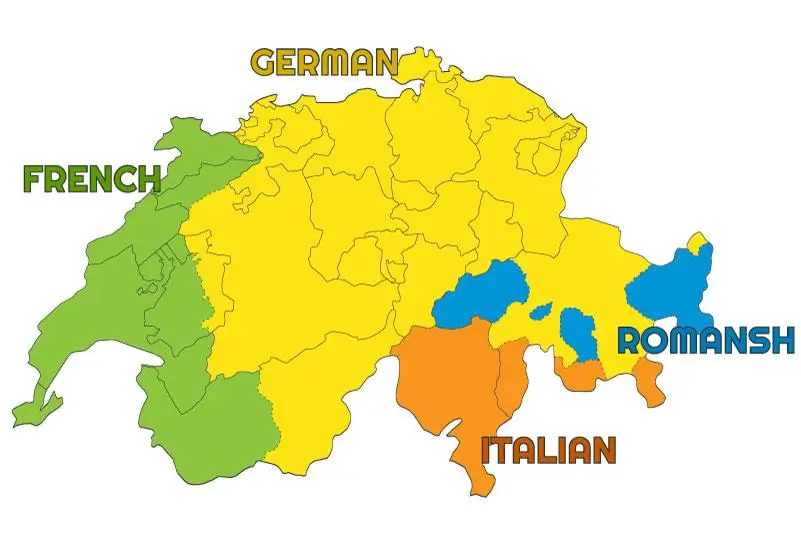
What Weather to Expect when Packing
Switzerland’s climate per year follows the standard 4-season profile where December – January is Winter, March-May (Spring), June – August (Summer) September – November (Autumn). Definitely always bring an umbrella no matter the time of year you are traveling to Switzerland.

Zurich appears to have the most rainfall throughout the year, especially in the month of June.
Meanwhile, Bern has the highest chance of snowfall throughout the year, especially from December to February. Bern is also the windiest city in Switzerland.

In Zurich, summer weathers are comfortable and wet, the winters are very cold and it’s almost always partly cloudy all year round. The average temperature is 27°F to 76°F and is rarely below 16°F or above 87°F. The most popular time to visit Zurich is late June to Early September because that time has the most warm-weather activities to enjoy.

Meanwhile, in Geneva, summers are warm and the winters are cold and wet. Similar to Zurich, it’s almost always partly cloudy all year round. wet and the temperature is most comfortable. While the winters are cold and there will be a lot of snow. The average temperature is 30°F to 79°F and is rarely below 22°F or above 89°F. The most popular time to visit Geneva is from Late June to Early September.
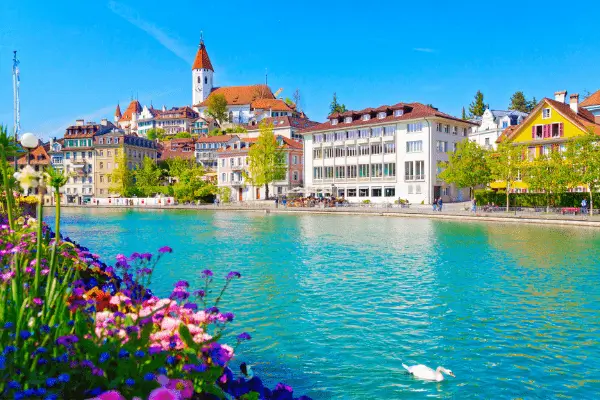
Lastly, in Bern, you can expect comfortable wet summers and super cold and snowy winters. It will also be partly cloudy all year round in Bern. The temperatures hover around 26°F to 76°F and are rarely below 14°F or above 86°F. The most popular time to visit is from late June to late August.

Geneva is the most tourist-friendly city in Switzerland when it comes to having the clearest rainless days throughout the year.
Switzerland Religion
PREDOMINANTLY CHRISTIAN with over 66% of the population identifying with either Roman Catholic or Protestant. There is also a significant number of the population without religion or “Unaffiliated” with around 29% identifying. What’s left of the population is divided up into Islam, Buddhists, Jewish (Judaism), Hindus, and others.
With that in mind, travelers visiting Switzerland should practice respectful behaviors in and around places of worship.
Currency
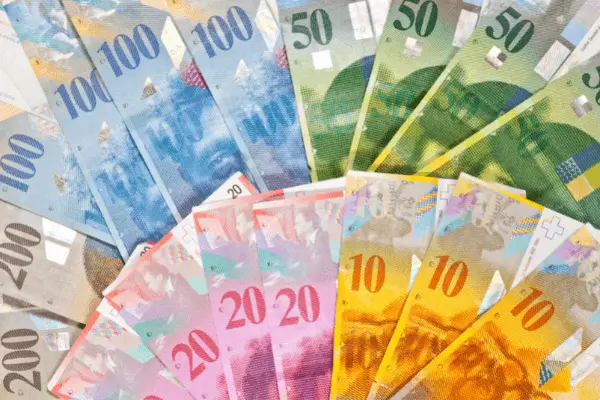
SWISS FRANC (CHF) - Unlike most Schengen countries, Switzerland has its very own official currency. The Swiss franc has been in use since May 1850 and is kept in use in order to unify the four regions of the national language.
It’s highly advisable to use Swiss Francs when making transactions within Switzerland. However, many establishments may accept Euro but the exchange will not be as favorable for sure. Even if you do pay in Euros, you will receive change in Francs too.
Switzerland has plenty of options when you need to have money exchanged. You will actually get the best rates at any Swiss Banks (However, they do not exchange coins, only bank notes) There are also money exchange bureaus at airports, railway stations, and hotels. Unfortunately, there are significant service fees for these establishments.
There are a lot of establishments in Switzerland that accept standard credit/debit cards like Visa or MasterCard. and Lastly, always maintain small denominations of your currency because acquiring change is quite difficult and if you’re looking to just get your money changed, it may come with a service fee.
Should you bargain?
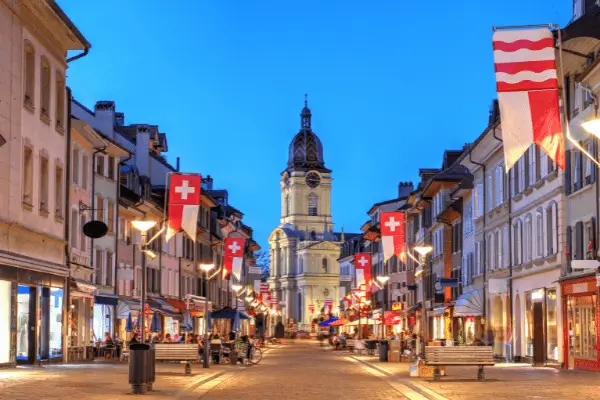
Haggling, bargaining, or any kind of negotiation is not really a common practice in Switzerland. A lot of locals shy away from having their prices negotiated and there is a high chance they won’t even entertain the haggling. This is another reason why Switzerland has something called a “high price regime” a significant factor why Switzerland is rated the most expensive country to visit in the entire world.
Should you leave a tip?
Tipping is not something you need to do in Switzerland. Service charges are normally added to the bill. However, it is still acceptable to round off your bill to the nearest Franc if you received good service.
How much a day Travelling in Switzerland?
Expect to spend a minimum of CHF 202 or USD 207 per day or more depending on interest and choice of activity. Food is very cheap and affordable in Switzerland of course depending on what you want to eat. If you’re good at budget traveling, it is possible to make the trip with 80 – 100 CHF per day.

The best thing to buy in Switzerland is definitely chocolates, watches, and swiss knives.
Power Plugs and Socket Travel Guide in Switzerland
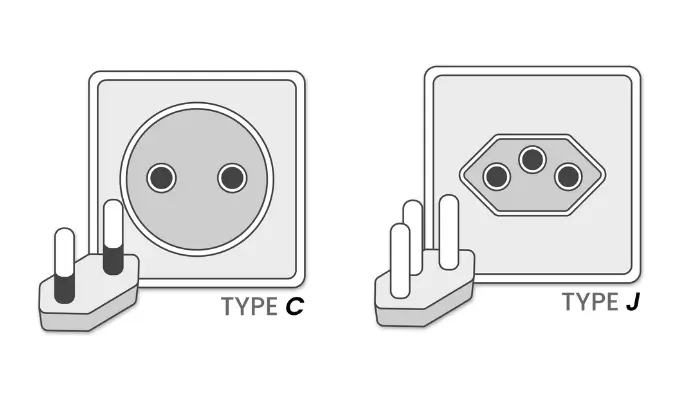
Switzerland uses Type C and J power plugs at 230 Volts and 50 Frequency. Bringing power plug adapters is advisable.
Getting Around and Staying Safe in Switzerland
Switzerland Travel Guide to Public Transports
The places for sightseeing in Switzerland are often far from the lodgings or the city centre. So you may have some concerns with transportation options or how to get around Switzerland.

Fret not for it’s very easy to get around Switzerland. The most-advised mode of transportation is Swiss trains. The stations are always clean and offer a lot of services that could be helpful for travellers. The trains also often arrive and depart on time and the travel is going to be comfortable as the trains are well-maintained and clean. Not to mention travelling by train offers the most scenic ride.
If you’re going to stay in Switzerland for a while and you think going by train is the best way to go, then don’t hesitate to avail yourself of a Swiss Pass. This awesome travel pass covers train rides all over Switzerland along with many intercity buses, ferry boats– even museum entrances. Of course with that, buses are also a great mode of transportation between cities or within.
Are there ride-hailing apps in Switzerland?
The best way to get around Switzerland if you’d like to go by private car is by using a ride-hailing app named Uber which is available for iOS and Android systems

Uber is available in the cities of Zurich, Basel, Geneva and Lausanne. Although local authorities really don’t like this operation as it takes away from actual taxi drivers especially when public transportation is pretty well-established in Switzerland in the first place.
Is it possible for me to drive on my own in Switzerland?
As long as you have a valid International Driver’s License, it’s pretty easy to rent a car and drive on your own around Switzerland.
Staying Safe in Switzerland
Switzerland is one of the safest countries to live and visit. It has ranked among the top safest cities in the world since 2019. The country is even ranked 11th as the safest place on earth.

That being said, it’s not impossible for some minor occurrences like pickpocketing in especially touristy places. So do be aware of your belongings. It’s highly rare for violent crimes to occur against tourists in Switzerland.
Switzerland Travel Guide – The Checklist

Travel Guide for Internet Everywhere in Switzerland?
If you’re looking to buy yourself a SIM Card, don’t expect to find it in major airports in Zurich, Bern, or Geneva. They may have some SIM Cards but they’re not one of the major telecom providers in Switzerland. Official providers in the country include Swisscom, Sunrise, and Salt. You will need your passport to purchase any SIM Card in Switzerland.
The easiest place to acquire a SIM card is through Official retail stores which can be found in every major city or shopping mall. You can check into google maps to find the nearest one to your hotel and go from there. These SIM Cards can also be acquired in gas stations or convenience stores but it’s going to be a hassle activating them on your own.
It doesn’t matter which provider you opt for because they all have the same excellent coverage and speed. The SIM Card cost starts around 20 CHF.

Switzerland Travel Guide to Bringing Medications
Firstly, prepare preferred over-the-counter medicines. Importantly, Keep them in original containers with labels for easy identification. Firstly, try to only bring in small quantities or as necessary.
A simple first aid can include i.e. Diarrhea medicines, antacids, antihistamines, motion sickness, cough drops, decongestants, pain and fever relief, mild laxatives, bandages, and small antiseptic solutions accordingly. Lastly, don’t forget your masks and preferred sanitiser.
Moreover, Bring a doctor’s prescription for other prescriptions that you may have as needed. Similarly, check for the allowed amount of quantity depending on your stay.
Now that you’ve read this Switzerland Travel Guide

Finally, you are officially ready to travel to Switzerland. Don’t forget that you’re always free to contact your AFC Representative if you have any more concerns before your departure! Lastly, We wish you safe and happy travels!
You may also be interested in our recent post: Germany Travel Guide Before You Go.
